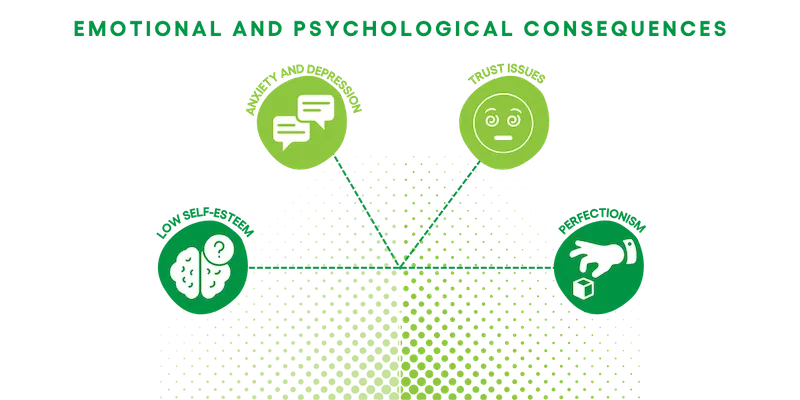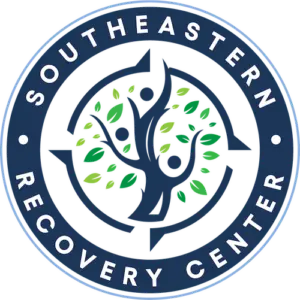Alcoholism can impact the entire family, but an alcoholic father’s effects on daughters can surpass childhood and have a lasting impact on adulthood.
Growing up with an alcoholic father can affect a daughter’s life in deep and lasting ways. These effects often go far beyond childhood, shaping emotional health, relationships, and behavior well into adulthood.
Understanding these patterns is the first step toward breaking the cycle. In this guide, we explore how alcoholism affects the father-daughter relationship, the emotional and psychological impact it leaves behind, and what steps can be taken to heal and reclaim control.
How Alcoholism Shapes the Family Dynamic
Alcoholism doesn’t just affect the person drinking, but it reverberates through the entire family. For daughters, the experience of growing up with an alcoholic father can be uniquely destabilizing.
In many cases, the household feels unpredictable. A daughter may never know which version of her father will walk through the door. It may be warm and affectionate one day, angry or absent the next. This kind of emotional rollercoaster can lead to chronic anxiety and deep insecurity.
Many daughters of alcoholic fathers take on adult responsibilities far too early. Some care for younger siblings, manage household duties, or even try to support their father emotionally, all while suppressing their own needs.
Research shows that about 10% of children in the U.S. live with a parent suffering from alcohol use disorder (AUD). These children are also four times more likely to develop substance abuse problems themselves.
The family dynamics can shift drastically depending on the father’s sobriety. Some days may bring moments of connection, giving daughters false hope of a change that never fully comes. Over time, this instability fosters confusion, resentment, and a deep-seated sense of insecurity.

Emotional and Psychological Consequences
The emotional impact of growing up with an alcoholic father often lasts long into adulthood. Some of the most common challenges daughters face include:
1. Low Self-Esteem
Daughters often blame themselves for their father’s behavior. They may believe they weren’t good enough to “make him stop.” This internalized guilt can become a core belief that follows them into adult life.
2. Anxiety and Depression
Living in a chaotic or unsafe environment during formative years creates chronic stress. This can evolve into persistent anxiety or depression later in life, sometimes without an obvious source.
Children from homes affected by substance abuse are at a significantly higher risk of developing mental health challenges.
3. Trust Issues
Inconsistent behavior and broken promises lead to a lack of trust, not only in their father but also in others. Even in healthy relationships, these daughters may struggle to let their guard down.
4. Perfectionism
To cope with chaos at home, some daughters overcompensate by becoming high achievers. They strive for control through success, whether in school, at work, or in relationships, but often feel that it’s never enough.

Lasting Behavioral Patterns in Adulthood
The survival strategies daughters adopt as children often carry into adulthood, sometimes without their awareness. Common behavioral patterns include:
Codependency
Daughters of alcoholic fathers frequently find themselves in codependent relationships. They may seek partners who mirror their father’s behaviors, hoping to “fix” or change them. This cycle often leads to disappointment and reinforces feelings of inadequacy.
Avoidance of Conflict
Growing up in a volatile environment often teaches children to avoid confrontation at all costs. As adults, these daughters may shy away from difficult conversations, fearing the potential fallout.
Overachievement & People-Pleasing
In the absence of emotional validation from their father, many daughters seek approval externally. They throw themselves into their careers or education, hoping that success will fill the void left by their childhood experiences.
Substance Use
Without proper intervention and support, some daughters turn to alcohol or drugs themselves, perpetuating the cycle of addiction. According to SAMHSA, children of parents with substance abuse issues are at a significantly higher risk of developing their own addictions.
While outwardly successful, daughters of alcoholic fathers may still struggle with feelings of inadequacy.
How Daughters Can Begin to Heal
Therapy as a Foundation
Talking to a therapist is one of the most effective ways to process childhood trauma. Cognitive Behavioral Therapy (CBT) can help daughters recognize and change harmful thought patterns, while family therapy can address deep-seated issues within the family unit. Research shows that therapists are seeing an increase in demand for anxiety and depression treatment – with referrals doubling.
The Power of Community
Support groups like Al-Anon or Adult Children of Alcoholics (ACoA) provide a space to connect with others who have lived similar experiences. These groups are incredibly valuable because they create a sense of belonging and validation. Participants are often relieved to discover they are not alone in their struggles, which can be an empowering realization. Sharing stories in these settings not only helps individuals process their own emotions but also provides valuable coping strategies from people who truly understand their situation.
Reclaiming Personal Boundaries
For many daughters, learning to say “no” and prioritizing their own needs is a huge step. Growing up in a household with an alcoholic father often involves putting the needs of others above their own, leading to a sense of self-sacrifice that feels difficult to escape. Reclaiming personal boundaries means understanding that their well-being is just as important as anyone else’s.
Self-Care Practices
Mindfulness meditation, journaling, and regular physical activity are all ways to reduce stress and nurture emotional resilience. These practices encourage daughters to reconnect with themselves and their own needs. Mindfulness meditation, for instance, can help them stay present and reduce the effects of lingering anxiety. Journaling offers a safe space to process complex emotions and identify patterns in their thoughts and behaviors.
Breaking the Cycle
Daughters of alcoholic fathers have the power to break the cycle of dysfunction. Acknowledging the impact of their upbringing is the first step, followed by seeking out healing opportunities and focusing on personal growth. It’s also about creating a new story, one where addiction doesn’t define future generations.
Research indicates that children of alcoholics who engage in therapy are more likely to improve their relationships and overall well-being.
Breaking the cycle also means learning what healthy relationships look like. This might involve understanding mutual respect, shared responsibilities, and open communication, qualities that may have been absent in their childhood home.
Supporting the Whole Family in Recovery
Healing doesn’t happen in isolation. Family therapy can help open lines of communication, rebuild trust, and foster understanding. Daughters can play an active role in encouraging their fathers to seek help, but it’s important to avoid enabling behaviors. Expressing concerns with compassion and providing resources are more effective than making excuses for their actions.
Family members often need to approach recovery as a team. By addressing how alcoholism has affected everyone’s roles and relationships, the family can work together to rebuild a foundation of trust and respect.
Frequently Asked Questions About Alcoholic Father Effects on Daughters
Can a daughter’s relationship with an alcoholic father ever be repaired?
Yes, but it requires effort from both sides. If the father seeks treatment for his addiction and the daughter pursues her healing through therapy or support groups, a healthier relationship can develop. However, it’s also essential to set realistic expectations and boundaries.
Are daughters of alcoholic fathers more likely to struggle with addiction themselves?
Unfortunately, yes. Studies show that children of parents with substance use disorders are significantly more likely to develop addictions. This is why early intervention and support are crucial.
What should a daughter do if her father refuses to seek help?
While you can’t force someone to seek treatment, you can protect your own mental health. Focus on setting boundaries, seeking therapy, and joining support groups like Al-Anon. Sometimes, focusing on your own healing can inspire others to change.
Overcoming the Effects of an Alcoholic Father on a Daughter
Growing up with an alcoholic father is undeniably challenging, but it doesn’t have to dictate your future. With the right support and resources, daughters can heal, grow, and thrive.
Southeastern Recovery Center is here to help families navigate the journey toward recovery. If you or someone you love is struggling, reach out to Southeastern Recovery Center to start building a healthier, brighter future.
Sources & Support Resources
For readers seeking more information or support, the following resources and research studies provide valuable insights into the effects of alcoholism on families, as well as access to recovery communities:
National Library of Medicine – Impact of Alcoholism on Families
National Institute on Alcohol Abuse and Alcoholism (NIAAA) – Consequences of Alcohol Use in Families
National Library of Medicine – Children of Alcoholics: A Review of the Literature
Substance Abuse and Mental Health Services Administration (SAMHSA) – Risk and Protective Factors for Substance Use
American Psychological Association (APA) – Increased Demand for Mental Health Treatment
Al-Anon Family Groups – Find an Al-Anon Meeting Near You
Adult Children of Alcoholics (ACoA) – ACoA Meeting Finder





